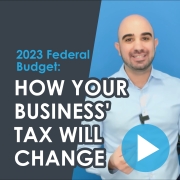
You may have heard the PM drop a big hint earlier this week that tax cuts are coming for middle-income Aussie families. However it was all very light on detail, so here’s what to make of it.
In case you missed it, here’s the tidbit that Prime Minister Malcolm Turnbull dropped on tax cuts:
“In the personal income tax space, I am actively working with the Treasurer and all my Cabinet colleagues to ease the burden on middle-income Australians, while also meeting our commitment to return the budget to surplus,” he said.
And that was that. A blink and you miss it moment. No details on when, what, where, why or how. Just who: middle-income Australians.
Here’s what some of the nation’s leading economists, columnists and the Labor opposition made of it all.
Ross Gittins, Sydney Morning Herald economics editor
“We don’t yet know whether the cuts will even be announced before Christmas, let alone when they’ll be delivered.”
“Wouldn’t surprise me if they were on the small side, nor if we got them only as a reward for voting Turnbull back into office at the next election.
“It wouldn’t surprise me if even Turnbull doesn’t yet have a clear idea about the size and timing of the cuts.”
Ross Greenwood, Nine Network finance editor
“Tax cuts, they’re the ultimate electoral aphrodisiac, and the PM was handing out the pheromones.”
“One thing the government could do is raise income thresholds. So the $37,000 threshold to $40,000. And then someone on $87,000 a year wouldn’t pay higher tax until they earn $90,000.
“That would save you about $400 a year and would cost the budget $4.2 billion.”
Phillip Coorey, Australian Financial Review chief political correspondent
Coorey highlighted the second option the government could take, which is more expensive and was first calculated by Chris Richardson of Deloitte Access Economics.
“Dropping the tax rate of 32.5 cents in the dollar – which applies to earnings between $37,000 and $87,000 – to 30 cents in the dollar would cost the budget $7.2 billion in the year 2020-21.”
Chris Richardson, Deloitte Access Economics economist
Former Treasury official Richardson told ABC radio the tax cuts were a “political imperative, not an economic one”.
“The economy is going fine. It really is. It does not need help, if you like, from tax cuts. The budget is not going fine and tax cuts would come at its expense.”
David Uren, The Australian economics editor
“Mr Turnbull’s revelation of plans for personal income tax cuts comes as the government tries to wrest back control of the national political agenda after being diverted by the citizenship saga and the same-sex-marriage plebiscite over the past two months.”
Bill Shorten, federal opposition leader
Labor leader Bill Shorten said the promised tax cuts were a cheap attempt by Turnbull to improve his standing in the opinion polls.
“It is like free beer tomorrow, isn’t it?”
“This bloke just says whatever comes into his head to keep the wolves from the door.”
What you should take out from it all
It looks like this will be a case of “watch this space”, as the Prime Minister looks to circle the wagons ahead of a 2018 or 2019 election campaign.
Now whether or not the foreshadowed tax cuts ever come to fruition may depend on Turnbull winning the next election.
In the meantime, there are other ways we can help reduce your tax pain without depending on government cuts, so give us a call and we’ll be happy to run through them with you.
Disclaimer: The content of this article is general in nature and is presented for informative purposes. It is not intended to constitute financial advice, whether general or personal nor is it intended to imply any recommendation or opinion about a financial product. It does not take into consideration your personal situation and may not be relevant to circumstances. Before taking any action, consider your own particular circumstances and seek professional advice. This content is protected by copyright laws and various other intellectual property laws. It is not to be modified, reproduced or republished without prior written consent.










